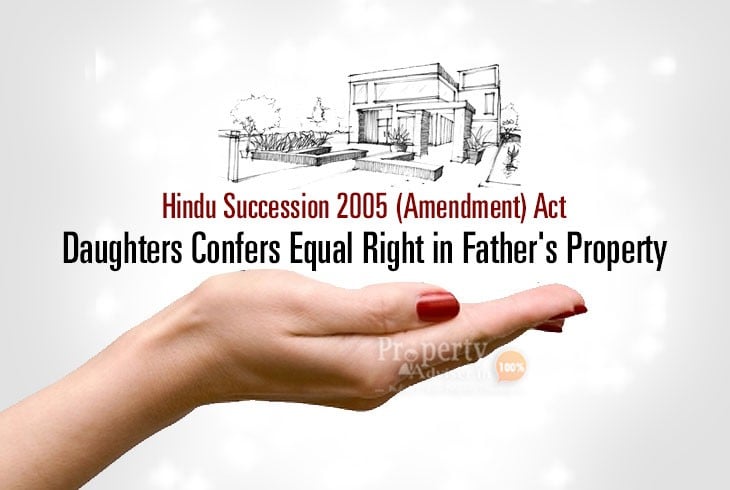The supreme court declared on Tuesday that daughters, like sons, have the same authority to inherit joint Hindu family property. The court upheld that the modified Hindu Succession Act, which grants daughters equitable access to ancestral property.
A daughter is always a loving daughter. A son is a son before he gets a wife. A daughter is a daughter all her time, the judge Arun Mishra, head of Bench, wrote the judgment.
Modified Hindu Succession Act 2005
In a major decision, the Supreme Court stated that even if the father died before the 2005 Hindu Succession Act (Amendment), the daughter will have equitable opportunities to inherit her share of the property. The daughter remains a co-parcener all her life, regardless of whether her parent is alive or not.
It essentially means that the Hindu Succession (Amendment) Act 2005, by which daughters were given an equal right in a HUF estate is retrospective in nature, i.e. it does not matter if the father was alive as on the date of the amendment. Widely followed earlier position that the daughter could claim a right in the family HUF only if her father is alive as on the date of the amendment has been overruled.
Who is a Coparcener?
The coparcener will be the one who shares equally in the inheritance of the undivided property. Under the Hindu Succession Act, 1956, any individual born in the Hindu Undivided Family (HUF) becomes a coparcener by birth. All sons and daughters become a coparcener in the family and hold equal rights and liabilities over the property.
Statements of Supreme Court
- The Hindu Succession Act confers a property right on the daughter born before or after amendment in the same manner as a son.
- Daughters possess the right in father's property is by birth, it is not necessary that the father should be living as on 9.9.2005.
- There will be two equal halves of the property.
- If there is injustice in dividing the property, the daughter can get justice with the favour of this Act.
- The oral partition cannot be accepted as a statutorily recognised mode of partition.
The Supreme Court declared that, in the future, families with HUF would need to be extremely vigilant if they agree to separate or enter into a family arrangement. The property document will have to set out the manner in which the distribution of family assets takes place under a division or family arrangement, and a daughter would have to be provided in the same way as a son. The distribution would have to be fair in accordance with that judgment.
The supreme court also observed that it is evident from the provisions of Section 6 that discrimination against a daughter has been abolished. That fair treatment has been given in the matter of inheritance of a fathers property.
The modified Act of supreme court paves the way for girls to assert ownership in their father's properties even before 2005 and places them on an equal level with sons.
By: Shailaja K













